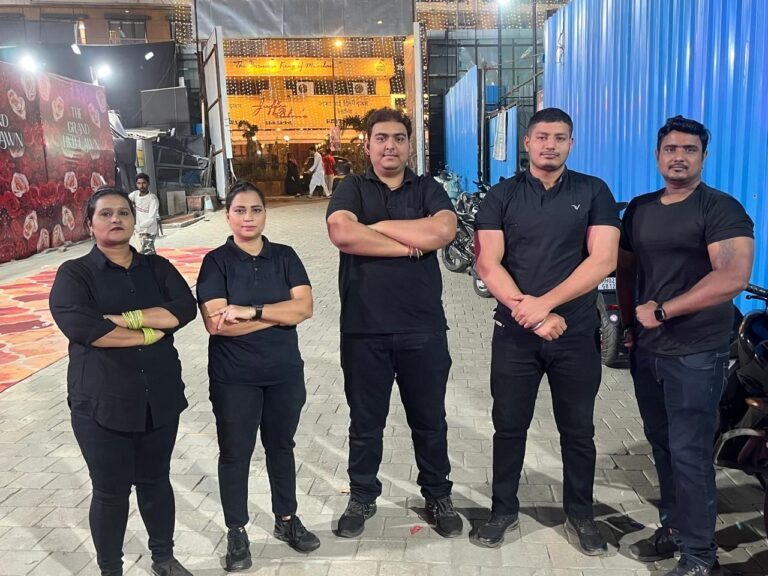CCTV cameras are a cornerstone of modern security systems, providing continuous surveillance and reliable evidence when needed. However, when these cameras stop recording footage, it can compromise security and leave gaps in monitoring. Addressing this issue promptly is crucial to restoring functionality and ensuring uninterrupted coverage. Partnering with the Best Security Company ensures that your CCTV system remains operational and reliable, offering expert troubleshooting and long-term solutions for system maintenance. This article explores the causes of recording failures, the steps to troubleshoot the problem, and long-term solutions for maintaining system reliability.
Understanding Common Reasons for Recording Failures
Several factors can cause CCTV cameras to stop recording footage. These may include technical malfunctions, power issues, storage limitations, or software glitches. Understanding the underlying cause is essential for effective troubleshooting and resolution.
Hardware-related issues, such as damaged cables or faulty recording devices like DVRs and NVRs, are often to blame. On the other hand, software problems may stem from outdated firmware or misconfigured settings. Additionally, external factors such as power outages or internet disruptions can interrupt recording.
Inspecting the Power Supply
The first step in diagnosing a recording issue is to ensure the camera and recording device receive adequate power. Check for loose or disconnected cables and ensure the power supply is functional. For systems relying on a battery backup or UPS, verify that these components are operational.
If the power supply is unstable, consider investing in surge protectors or voltage regulators to prevent future disruptions. Power-related issues are common causes of recording failures, especially in areas prone to electrical fluctuations.
Verifying Storage Availability
CCTV systems rely on storage devices, such as hard drives, to save recorded footage. A full or malfunctioning hard drive may prevent new recordings from being stored. Access the system’s storage settings to check available space and clear unnecessary files if needed.
In cases where the hard drive is damaged or corrupted, replacing it with a new one is often the best solution. Upgrading to larger-capacity storage can also help accommodate long-term recording needs, especially for high-resolution cameras.
Checking Camera Connectivity
Connectivity problems can cause cameras to stop transmitting footage to the recording device. Inspect the network cables and connections for damage or disconnection. For wireless cameras, ensure they are within range of the router and have a stable internet connection.
For IP cameras, access the camera’s interface to confirm it is online and properly linked to the network. If connectivity issues persist, restarting the camera or router may resolve the problem.
Reviewing System Settings
Misconfigured settings can inadvertently disable recording. Access the camera’s software or the DVR/NVR interface to review the recording schedule and settings. Ensure the system is set to record continuously or during specific timeframes based on your requirements.
Motion-detection-enabled cameras may fail to record if the sensitivity is too low or the motion zones are incorrectly configured. Adjust these settings to ensure the camera captures all relevant activity.
Updating Firmware and Software
Outdated firmware and software can lead to system malfunctions, including recording failures. Manufacturers regularly release updates to fix bugs, enhance performance, and add new features. Visit the manufacturer’s website or use the system’s interface to check for updates and apply them as needed.
Keeping the software up to date is particularly important for systems integrated with other devices or relying on cloud-based storage. Regular updates ensure compatibility and minimize the risk of interruptions.
Examining the Recording Device
The DVR or NVR is a critical component of a CCTV system, responsible for storing and managing recorded footage. If the recording device malfunctions, it may cause the entire system to stop recording.
Inspect the DVR or NVR for physical damage, overheating, or power issues. Restarting the device often resolves minor glitches. If the problem persists, consider resetting the device to factory settings and reconfiguring it.
Testing Cameras Individually
If multiple cameras are connected to the same system, testing them individually can help identify the faulty component. Disconnect other cameras and focus on one at a time, observing whether it records footage as expected.
If a specific camera consistently fails to record, the issue may lie within its internal components. In such cases, professional repair or replacement may be necessary.
Considering External Factors
External factors, such as environmental conditions or tampering, can also impact recording functionality. Extreme temperatures, humidity, or physical damage from vandalism can disrupt camera performance.
Ensure outdoor cameras are weatherproof and installed in secure locations. Using protective casings and mounting brackets can safeguard them from environmental damage and tampering.
Consulting a Professional
If troubleshooting efforts fail to resolve the issue, consulting a professional is advisable. Certified technicians have the expertise and tools to diagnose complex problems and provide tailored solutions. They can also recommend system upgrades or enhancements to improve overall reliability.
Professional assistance is particularly beneficial for large-scale systems or setups involving integrated security technologies, such as access control or alarm systems.
Preventing Future Recording Issues
Preventing future recording failures requires proactive maintenance and monitoring. Regularly inspect the system’s components, clean the camera lenses, and check for firmware updates. Establishing a maintenance schedule ensures potential issues are identified and resolved before they escalate.
Backing up footage to the cloud or an external device adds an extra layer of security, ensuring critical recordings are not lost due to system failures. Additionally, investing in high-quality equipment reduces the likelihood of malfunctions and extends the lifespan of the system.
Conclusion
CCTV cameras play a vital role in maintaining security, and any interruption in recording can compromise their effectiveness. By systematically addressing power, connectivity, storage, and software issues, you can restore functionality and ensure reliable surveillance.
Regular maintenance and timely updates are key to preventing future problems, while professional assistance can resolve complex issues. A well-maintained CCTV system provides continuous protection and peace of mind, ensuring your security needs are met without compromise.












